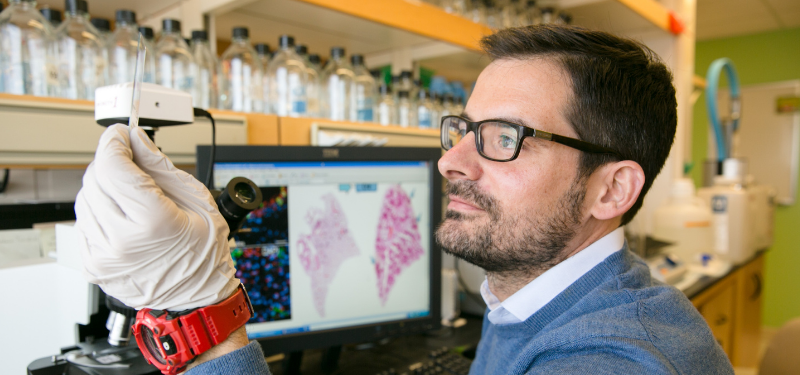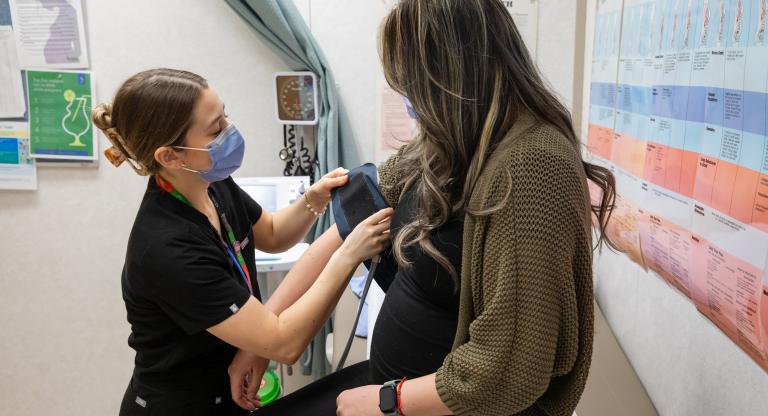New biomarkers and cancer-driving genes found in the dark matter of the cancer genome

A new batch of prognostic cancer biomarkers have been discovered in an area where few have gone looking before.
In a new study published this fall in Cell Reports, researchers at the Lunenfeld-Tanenbaum Research Institute (LTRI) and the Ontario Institute for Cancer Research (OICR) have unveiled a catalogue of 166 prognostic biomarkers.
The study was co-led by Dr. Daniel Schramek, principal investigator at the LTRI and Dr. Jüri Reimand, principal investigator at the OICR. The scientists used machine learning to evaluate 5,600 potential lncRNA biomarkers against nearly 9,500 cancer samples across 30 cancer types.
Long non-coding RNAs, or lncRNAs, are widely considered to be understudied in cancer research. In these latest findings, the team found that the 166 lncRNAs directly correlated with patient survival and these biomarkers could potentially be used to better forecast patient outcomes.
“Identifying novel biomarkers of patient survival and genes that regulate the aggressiveness of cancers, is of uttermost importance for our goal of precision oncology,” said Dr. Schramek, whose team led the functional analysis. “A deep understanding of the factors that drive cancer will help to identify new therapeutic targets and treatment strategies.”
Within their catalogue, the researchers zeroed in on one lncRNA, called HOXA10-AS, that their initial machine learning analysis revealed was a strong candidate as a prognostic biomarker to classify patients as having either a low- or high-risk brain cancer.
This biomarker was shown to be highly effective in categorizing gliomas, a common type of brain tumour, as low or high-risk. Dr. Reimand said these findings demonstrate the potential of lncRNAs as clinical biomarkers and potential therapeutic targets and break new ground in biomarker and cancer biology research.
“We are excited by the results of this study which not only yielded new biomarkers and insights into cancer biology, but also provides motivation to continue our exploration of the cancer transcriptome for new discoveries to help patients,” said Dr. Reimand, whose team led the machine learning analysis. “We have only begun to scratch the surface of the role of RNAs in cancer.”
Encouraged by the machine learning results, the team further validated their findings using cancer cells from patients, xenograft and organoid models. These steps not only confirmed that HOXA10-AS can act as a robust biomarker, but also as a potential therapeutic target since it plays a role in several important biological pathways in brain cancer.
This research was partially funded by the OICR and the New Investigator Award of the Terry Fox Research Institute (TFRI). Funding from OICR is provided by the Government of Ontario through the Ministry of Colleges and Universities.












